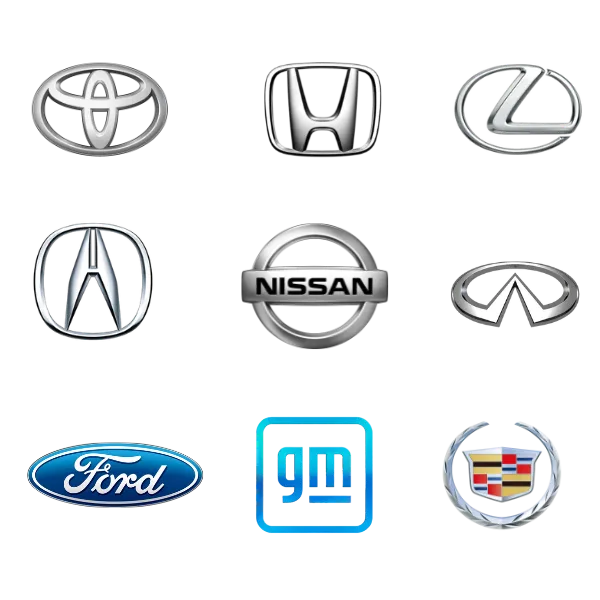Mon-Fri 8:00AM - 5:00PM , Sat 8:00AM-2:00PM
Automed Car Care
FOREIGN & DOMESTIC REPAIR SPECIALISTS
Request A Callback
You can contact us anytime
PROVIDING WEST LOS ANGELES & CULVER CITY CAR REPAIR FOR FOREIGN & DOMESTIC VEHICLES
Whether your car needs brake repairs, an oil change, battery repairs or another type of service, count on our mechanics to get the job done to your satisfaction.

#1 TRUSTED AUTO REPAIR CULVER CITY, CA
All auto repairs and parts at AutoMed Car Care are backed by a 24-month or 24,000-mile warranty.

Brake Repair
Schedule brake service at the best brake repair Culver City center. We use state-of-the-art diagnostic tools and software, OEM parts and high-quality lube. Same-day service quarantined. We got you covered for brake evaluation, brake shoe and pads replacement, brake calipers installation, master cylinder replacement, brake fluid exchange, brake system adjustment, and any other brake repair service West Los Angeles drivers need.

Auto AC Repair
At AutoMedLa, we take care of all components of your auto A/C system. Being the best car AC repair in Culver City, we can fix any AC system. Auto air conditioning repair usually includes air conditioner diagnostic, installation, replacement to compressor and blower repairs and leaks. Using AC charging machines and one of the industry’s best leak detector machines, we can guarantee the same day service for most AC services.

Oil Change
Same day oil change. Premium synthetic oil and filters – at affordable prices. Call us today and get an oil change Culver City special for $59.99. Every service includes a free multi-point inspection and safety check for all domestic and European vehicles. Change oil and filters in most trusted west Los Angeles repair shop and get better gas mileage, prolong engine life, improve engine performance, and lower vehicle emissions.

Tire Service
From tire inspection, tire pressure check, flat tire repair, tire mounting, balancing, tire rotation, tire sensor replacement to wheel alignment – AutoMedLA got you covered. Our tire shop is equipped with tools, and our mechanics have the experience to deal with any tire problem. We partner with the leading tire brands, Pirelli, Falken, BFGoodrich, Firestone, Bridgestone, Yokohama, Michelin, Goodyear. Buy the best performance and all-season tire at fantastic prices in the West LA.

Battery Service
We are your go-to resource for car battery services in Culver City. Our mechanics are doctors in servicing and replacing batteries in all makes and models. They use only the dealer-level chargers, solar tenders, and jump starters. We provide lead-acid, deep cycle, AGM batteries, and so on. Our inventory includes top brands like Exide, Interstate, Motorcraft, AC Delco, and more. We are here to help you choose the perfect battery for your budget and vehicle.
Complete Auto Repair in Culver City
Are you looking for American or Japanese auto repair in West Los Angeles? Look no further than Automed Car Care. We are the best independent, dealer-alternative for Toyota, Lexus, Honda, Acura, Nissan, Infiniti, Ford, GM, Cadillac, and Tesla repair in West Los Angeles. Forget expensive dealer services and repairs. Our center provides dealer-level diagnostic, tools and OEM parts for all American & Japanese car makers – at affordable prices. We offer diagnostic, maintenance and repair services for gas, hybrid and EV vehicles. Quality Auto Repair doesn’t have to be pricy if you come to Automed Car Care.

What Our Customers Say

Abe helped my wife and I get our cars back on the road safely. He's friendly, professional, and a great mechanic. We will be back my friend!
Alex D.

I've been going to automed for a few years now and Abe has always been super friendly and helpful. My car is always fixed and returned very promptly and can always count on them to do a good job.
Adie M.

Amazing company! I've been here twice and they are quick. Brian was so helpful when my transmission went out, and recommended great options and fair pricing. So happy I went to Automed!
Aliyah O.
100% Customer Satisfaction
12 Month /12K Mile Warranty
Free Safety Inspection
Pick-up Service
Drop-off Service
ASE Certified
Free Wi-Fi
Complimentary Coffee




